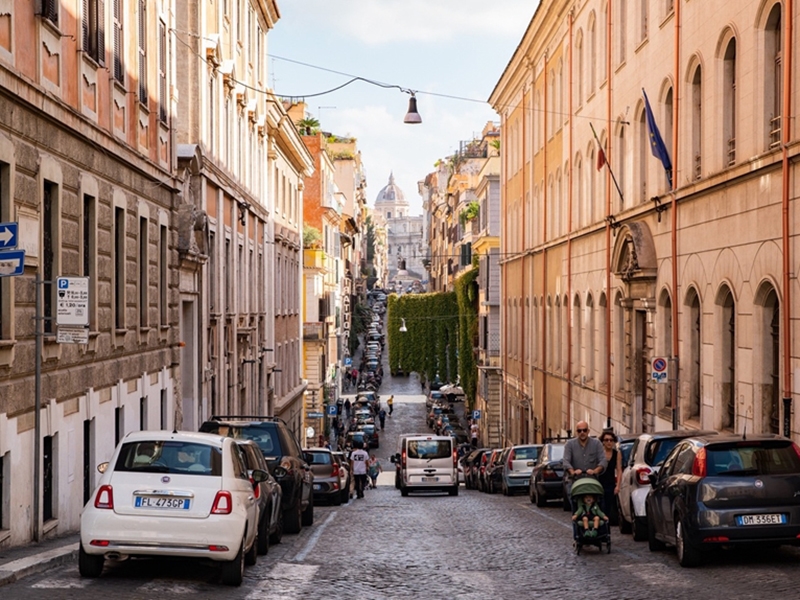
U of A students will soon have the chance to study and experience the culture of food and life in Italy through a new study abroad trip combining hospitality management and human nutrition and dietetics.
Designed by faculty in the Dale Bumpers College of Agricultural, Food and Life Science's School of Human Environmental Sciences, the Food & Culture of the Italian Mediterranean international program will be offered for the first time May 13-23 in 2024. The program is led by hospitality management teaching assistant professor Dede Hamm and human nutrition and dietetics instructor Mechelle Bailey.
The trip also incorporates elements of tourism, which is a major component of the hospitality management program. Tourism is the second-largest industry in the state, to agriculture, and Hamm recently attended the Governor's Conference on Tourism. The state tourism economic impact for 2021 was $8 billion, with 64,144 employees working in the industry.
The faculty-led Italian Mediterranean program will broaden students' exposure to a different lifestyle and increase their empathy, cultural competence and emotional intelligence, as well as knowledge of the history and traditions of the Italian culture. Italy is the birthplace of Slow Food International and home to the most UNESCO World Heritage sites, offering unique opportunities to fully experience the Mediterranean diet and lifestyle.
"After having led students on study tours to Italy in 2014 and 2016, I have seen how it changes how they think and learn," Hamm said. "Traveling abroad is truly one of the best ways to learn about culture and the diversity that exists in the world. Being able to offer this study tour as part of a class is truly a privilege, and we look forward to leading students on this amazing tour to study the culture and diet of the Mediterranean in May 2024."
The itinerary includes a stay in Rome and a Roman food tour; tours of the Vatican Museum, Sistine Chapel and St. Peter's Basilica; a trip through the Roman countryside with a vineyard visit and wine tasting; tours of the Colosseum, Roman Forum and Palatine Hill; a farm-to-table guest lecture and a cooking class in Florence; a trip to Emilia Romagna for sessions with a parmigiana cheese producer and a balsamic vinegar producer; a tour of the Uffizi Museum in Florence; and a hike to Piazzale Michelangelo, among other activities.
The trip is part of a summer course and provides a balance of excursions and interactive educational activities including discussions and demonstrations with local community members about their daily lifestyle, Mediterranean meals and lessons in traditional settings, and more formal educational sessions with experts in nutrition and the history of the Mediterranean lifestyle.
About the Dale Bumpers College of Agricultural, Food and Life Sciences: Bumpers College provides life-changing opportunities to position and prepare graduates who will be leaders in the businesses associated with foods, family, the environment, agriculture, sustainability and human quality of life; and who will be first-choice candidates of employers looking for leaders, innovators, policy makers and entrepreneurs. The college is named for Dale Bumpers, former Arkansas governor and longtime U.S. senator who made the state prominent in national and international agriculture. For more information about Bumpers College, visit our website, and follow us on Twitter at @BumpersCollege and Instagram at BumpersCollege.
About the University of Arkansas: As Arkansas' flagship institution, the U of A provides an internationally competitive education in more than 200 academic programs. Founded in 1871, the U of A contributes more than $2.2 billion to Arkansas' economy through the teaching of new knowledge and skills, entrepreneurship and job development, discovery through research and creative activity while also providing training for professional disciplines. The Carnegie Foundation classifies the U of A among the few U.S. colleges and universities with the highest level of research activity. U.S. News & World Report ranks the U of A among the top public universities in the nation. See how the U of A works to build a better world at Arkansas Research and Economic Development News.
Topics
- International
- Food & Nutrition
- Cultural Events
- Academic Affairs
- Dale Bumpers College of Agricultural, Food & Life Sciences
- Graduate School & International Education
- School of Human Environmental Sciences
- Hospitality Management Program
- Human Nutrition and Dietetics Program
- Office of Study Abroad & International Exchange
- Rome Center
Contacts
Robby Edwards, director of communications
Dale Bumpers College of Agricultural, Food and Life Sciences
479-575-4625,